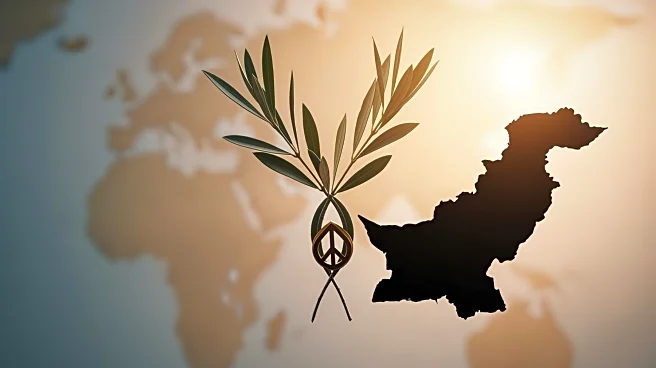What's Happening?
The Afghan Taliban and Pakistan have agreed to a temporary ceasefire following deadly border clashes. The violence resulted in significant casualties, with both sides accusing each other of initiating
the conflict. Pakistan reported killing 15-20 Afghan Taliban fighters, while the Taliban claimed numerous Pakistani soldiers were killed. The ceasefire, requested by both sides, aims to provide a pause for diplomatic efforts to address the underlying tensions.
Why It's Important?
The ceasefire is a critical step in preventing further escalation of violence along the Afghanistan-Pakistan border. The conflict has disrupted trade and affected local communities, with border closures impacting economic activities. The humanitarian toll, with civilian casualties and displacement, underscores the need for urgent diplomatic intervention. The situation could further strain relations between the two countries, complicating efforts to address cross-border militancy and security challenges.
What's Next?
The temporary ceasefire provides an opportunity for both sides to engage in dialogue and seek a lasting resolution to the conflict. The international community, including countries like China and Russia, may play a role in facilitating negotiations. The closure of border crossings has stranded vehicles and disrupted trade, adding pressure on both governments to resolve the conflict. Continued diplomatic efforts will be necessary to prevent further escalation and address the root causes of the violence.
Beyond the Headlines
The conflict highlights the ongoing challenges in managing border security and addressing militant activities in the region. The humanitarian impact raises ethical concerns about the conduct of military operations and the protection of civilians. Long-term peace will require addressing historical grievances and fostering cooperation between Afghanistan and Pakistan. The involvement of regional powers in brokering peace underscores the broader implications for international diplomacy.








